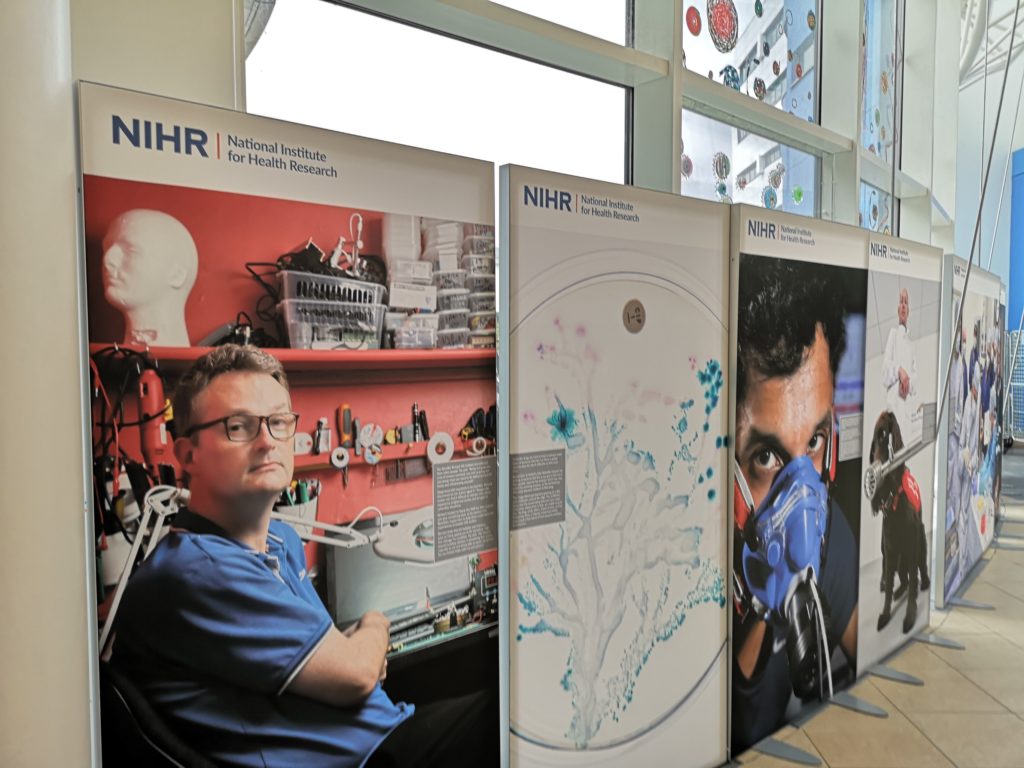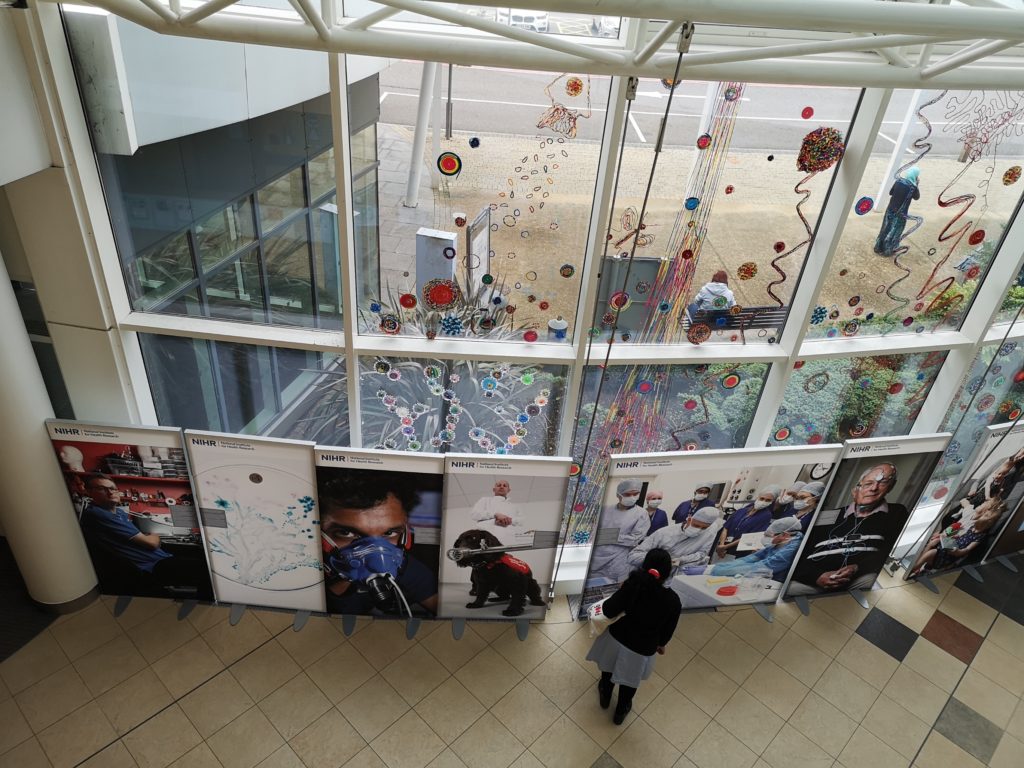A photography exhibition showcasing ground-breaking NHS research taking place across the Thames Valley can now be viewed by visitors and staff at Oxford’s John Radcliffe Hospital.

‘The Body Unlocked: How Research is Changing Lives’ features life-sized photographs of people who have taken part in studies, researchers at work and microscopic images of cells and bacteria.
The exhibition is in the hospital’s West Wing, between the entrance to the Children’s Hospital and Pret A Manger, until 30 November. It will visit other venues across the Thames Valley in future, having already visited central Oxford, Newbury and Didcot.
In keeping with Covid-19 guidelines, people are asked not to visit the hospital unless they have a prior appointment, are following the latest guidance for people visiting inpatients at the hospital, or are a member of staff. Images can be viewed at thebodyunlocked.info.
Dr Bruno Holthof, Chief Executive of Oxford University Hospitals NHS Foundation Trust, said: “This exhibition shows the amazing breadth of healthcare research that is taking place in Oxford and the wider Thames Valley region. It’s fitting that it should spend some time at the John Radcliffe, where so much important research takes place.
“We hope that people visiting the hospital in the coming weeks will take the opportunity to look at these lovely images and that they might be persuaded to get involved in research. Without the participation of patients and members of the public, we could not achieve the medical breakthroughs that benefit so many NHS patients.”
The studies highlighted in the exhibition are taking place not only in Oxford, but also across the Thames Valley, with support from the NIHR Oxford BRC and other parts of the National Institute for Health Research (NIHR) in the region.
Images include surgeons preparing a pioneering gene therapy injection for vision loss, dogs smelling urine to detect cancer, a close-up of cells responsible for controlling blood sugar and a virtual reality headset to treat mental illnesses (see notes to editors to access the photos and full captions).
Research studies are an integral part of improving treatments in the NHS, public health and social care for conditions such as cancer, diabetes and psychosis.
More than 2,900 participants have already been involved in COVID-19 research at Oxford University Hospitals NHS Foundation Trust including studies into drug treatment and DNA analysis of those with the infection. Learn more at bepartofresearch.uk.

Prof Belinda Lennox, Clinical Director for the NIHR Clinical Research Network Thames Valley and South Midlands, one of the NIHR partners behind the exhibition, said: “Health research is vital for developing new treatments in the NHS, improving the quality of the care that we provide and learning more about various conditions. We rely on the public to take part in this research, which can include anything from filling out surveys or giving a blood sample to trialling a new medication or treatment.
“This exhibition highlights the ground-breaking research taking place across the Thames Valley and we hope that it encourages the public to volunteer for studies in the NHS.” To learn more about the exhibition visit thebodyunlocked.info. Venues interested in hosting the exhibition can contact comms.crnthamesvalley@nihr.ac.uk.